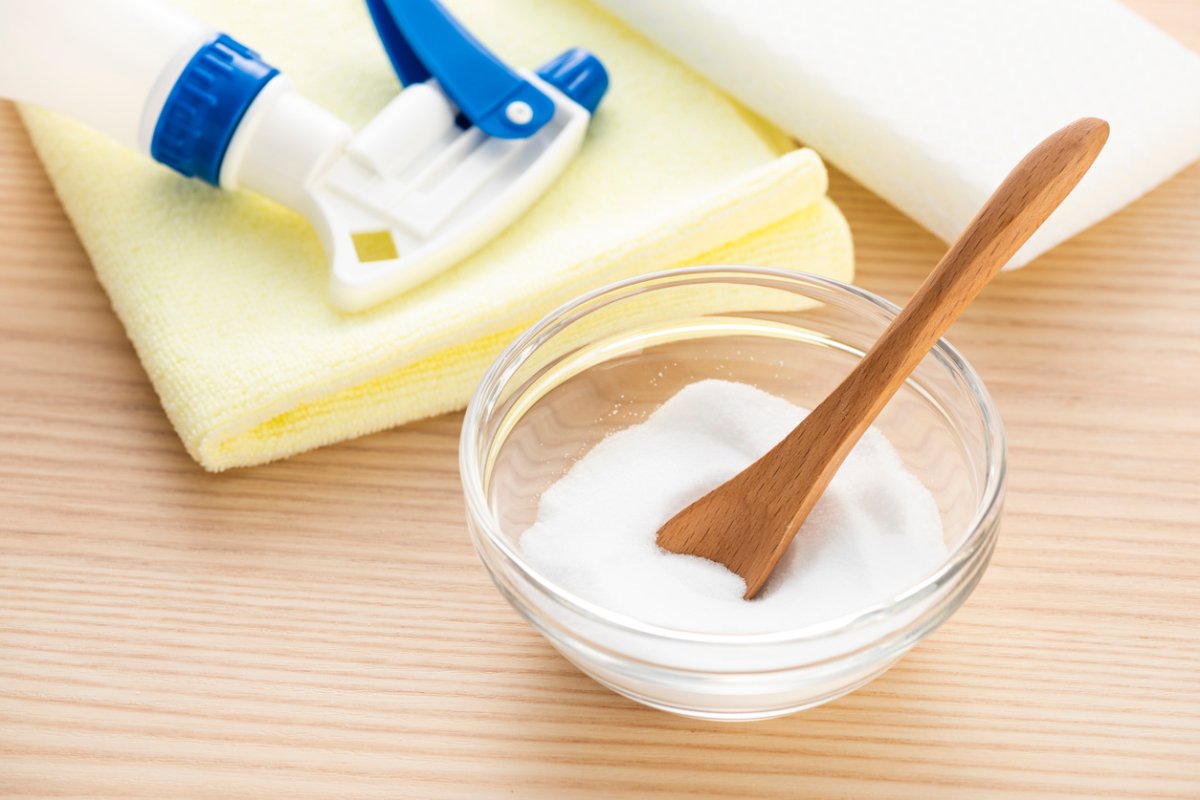

We may earn revenue from the products available on this page and participate in affiliate programs. Learn More ›
Keeping your home clean can seem like a never-ending task, and having to switch between a wide variety of cleaners can make it feel even more tedious. Fortunately, products such as citric acid can help simplify a range of cleaning tasks in nearly every room of the home. Citric acid uses range from descaling the coffee maker to removing hard water stains from the toilet, making it a versatile natural cleaning product.
Before you roll up your sleeves and start cleaning with citric acid, take steps to protect yourself. While citric acid itself is safe to use, the powder has the potential to irritate the skin, eyes, nose, and throat. Always work in well-ventilated spaces, wear gloves, and take steps to protect yourself from breathing in the powder or coming into direct contact with it.
What Is Citric Acid?
Citric acid is a naturally occurring organic acid in fruits, particularly citrus varieties. Oranges and lemons contain high concentrations of citric acid, and these citrus fruits are sometimes the sources from which the acid is extracted before it’s converted into a powder form. However, it’s commonly made from Aspergillus niger, a fungus. While citrus fruits like lemons have several household uses thanks to their citric acid content, citric acid powder is far more concentrated, making it a stronger and more effective cleaner.
Store-bought citric acid powder, such as Milliard Citric Acid available at Amazon, can be a powerful cleaner for bathrooms, kitchens, and other rooms in the home. While it is an acid, it is a relatively mild one that works well to descale surfaces, eliminate hard water stains, and more.
Using acid for cleaning purposes may sound like a risk to some, so is citric acid safe to use at home? Fortunately, the answer is yes. Citrus powder is often used for cooking and food preservation, so it doesn’t pose a threat if it is ingested. However, as mentioned earlier, this cleaner can damage skin, eyes, nose, and throat, so handle it carefully with gloved hands (and consider wearing a mask or goggles) when using citric acid powder for cleaning.
RELATED: The Best Natural Cleaning Products, Tested and Reviewed
1. Remove hard water stains and buildup from the dishwasher.
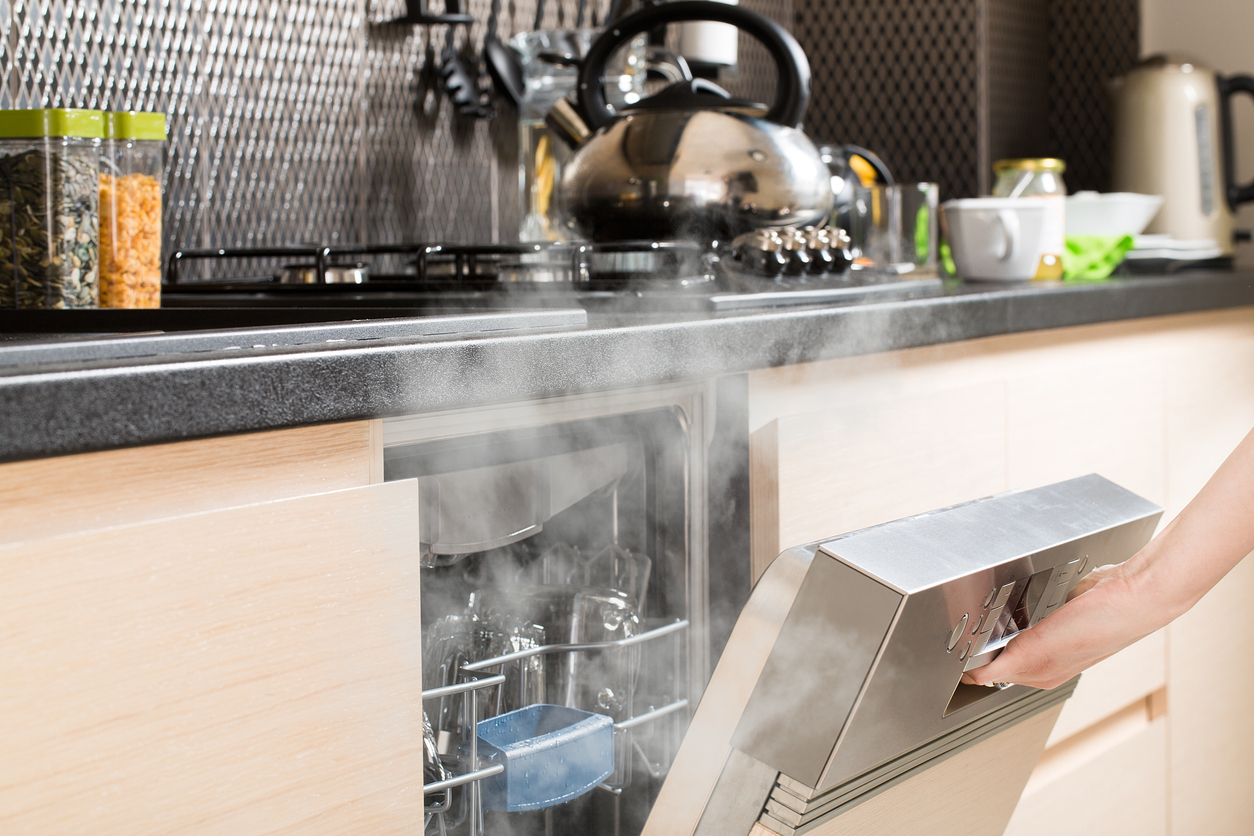
One of the top uses for citric acid is to clean dishwashers for more effective cycles. If your home has hard water, the detergent you add to each load of dishes won’t fully dissolve. Soap scum can accumulate on the inside of the dishwasher, making it smell and exposing your “clean” dishes to bacteria.
To get rid of this buildup, empty your dishwasher and put about 2 teaspoons of citric acid powder and 1 teaspoon of baking soda on the bottom of the dishwasher. Run a hot wash cycle, then wipe out the inside of the dishwasher once the cycle concludes. Add this to your monthly routine to keep your dishwasher clean and performing as expected.
2. Loosen and remove gunk from the microwave.
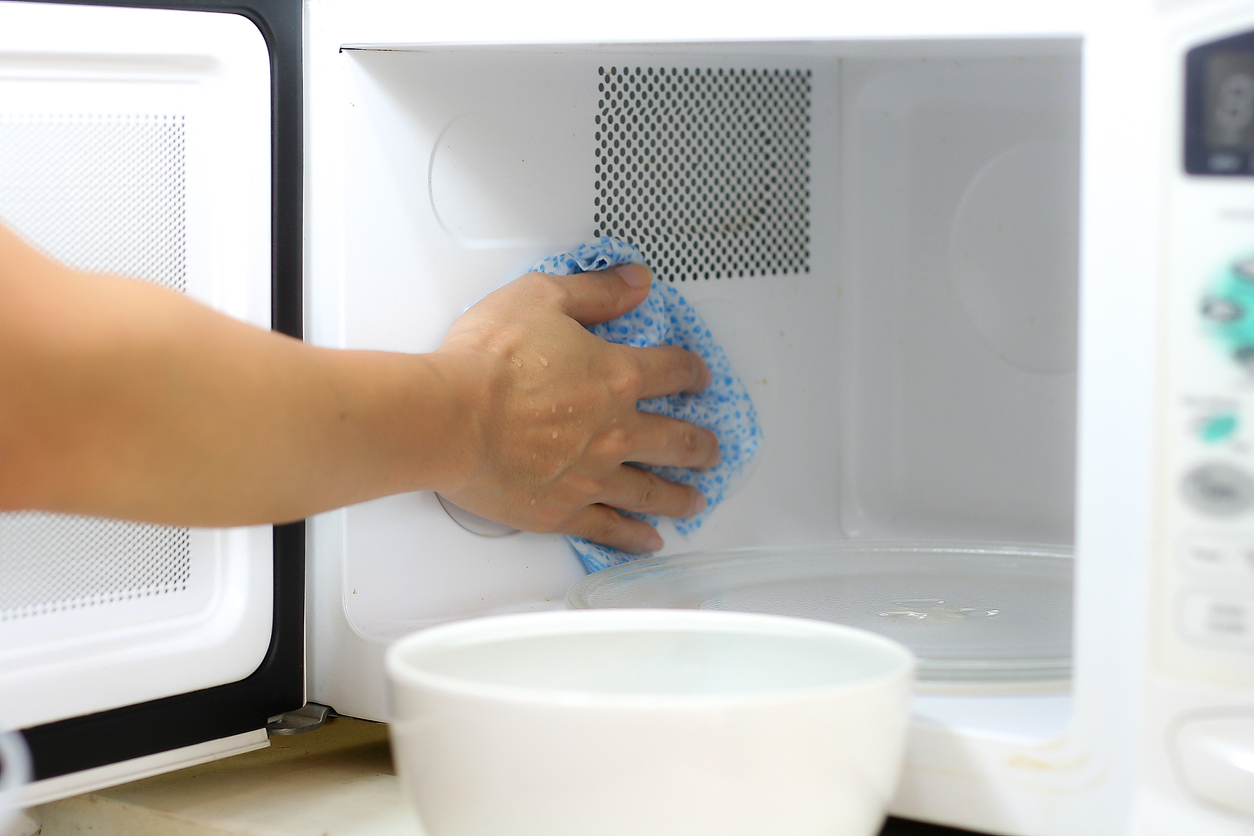
While you may have heard of using lemon juice and some water to clean your microwave, you can also use concentrated citric acid powder for the same task.
- In a microwave-safe bowl, mix together 2 cups of water and 2 tablespoons of citric acid powder.
- Heat the water and citric acid mixture for several minutes in the microwave until it starts to boil.
- Leave the door closed for 5 to 10 minutes to keep the steam inside the microwave.
- Wait for the steam to dissipate and the bowl to cool. Then, carefully open the door and use a sponge to wipe down the inside of the microwave: top, sides, and base.
The citric acid steam should loosen any stuck-on foods, making them easier to wipe away.
3. Clean kitchen countertops and stainless steel appliances.

You can also use citric acid for cleaning various kitchen surfaces. Spray it over laminate or sealed stone countertops before wiping them down with a soft cloth to sanitize their surfaces and leave them smudge-free. Take note, however, that you should never use citric acid on unsealed natural stone countertops. As an acidic cleaner, it could leave pits in the stone.
Citric acid can also help restore the shine to your stainless steel kitchen appliances. It can remove grime, hard water stains, and more.
4. Get rid of hard water stains in the toilet bowl.
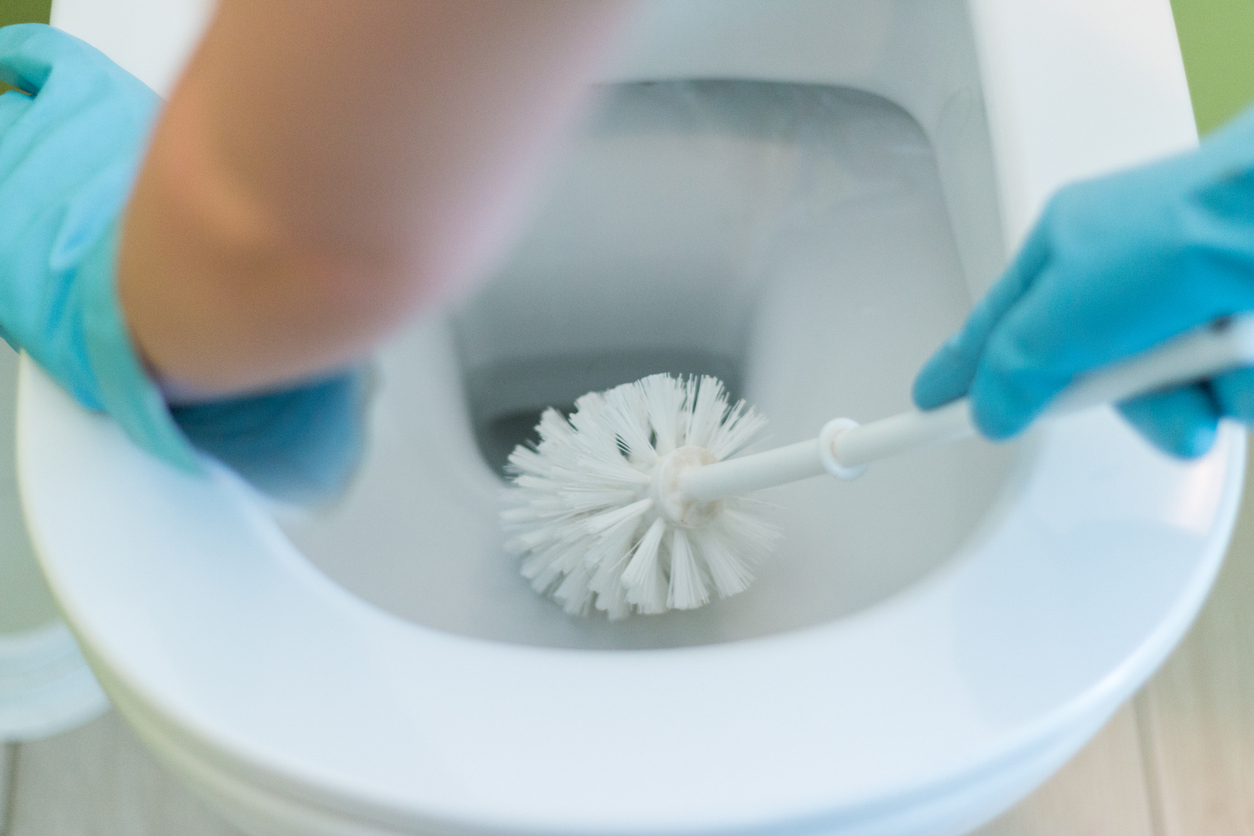
If you recently cleaned your toilet but can’t seem to get all of the stains to go away, you’ve encountered another one of citric acid powder’s top use cases. Those stubborn stains you’re seeing are likely the result of hard water buildup.
Try adding a few tablespoons of citric acid powder to the bowl and let it sit for 15 to 30 minutes. Use a toilet brush to scrub the inside of the bowl, and then marvel at how the stains disappear when you flush the toilet.
5. Descale coffee makers and espresso machines.
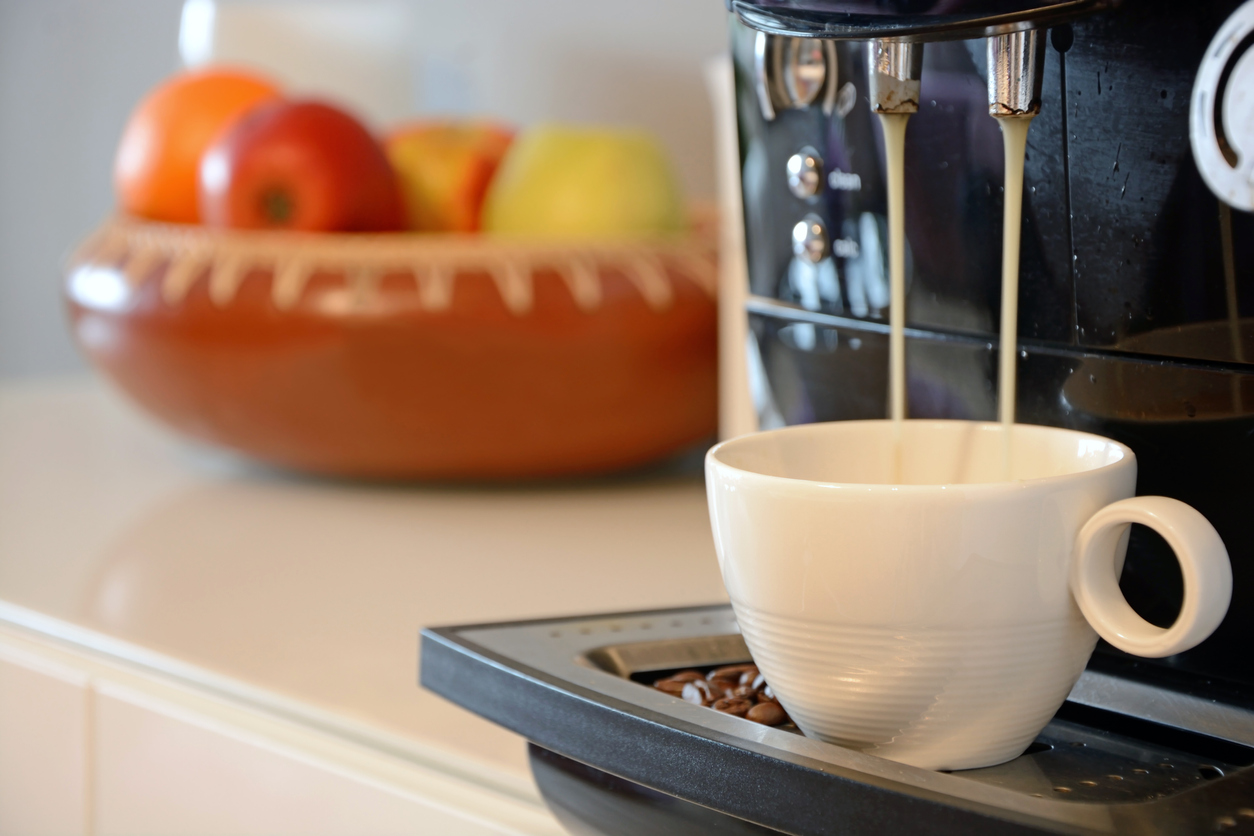
What else is citric acid powder used for in the kitchen? If you’ve been searching for the best way to clean your Nespresso machine or descale other coffee maker brands, citric acid powder has come to the rescue.
Running a cycle with a cup of water and 1 tablespoon of citric acid powder each month can help clear mineral deposits. After running the clean cycle, follow up with a second cycle with just water to rinse away any citric acid powder from the machine.
RELATED: 13 Surprising Pantry Items That Naturally Clean and Freshen Your Home
6. Remove limescale and calcium deposits from faucets and shower heads.
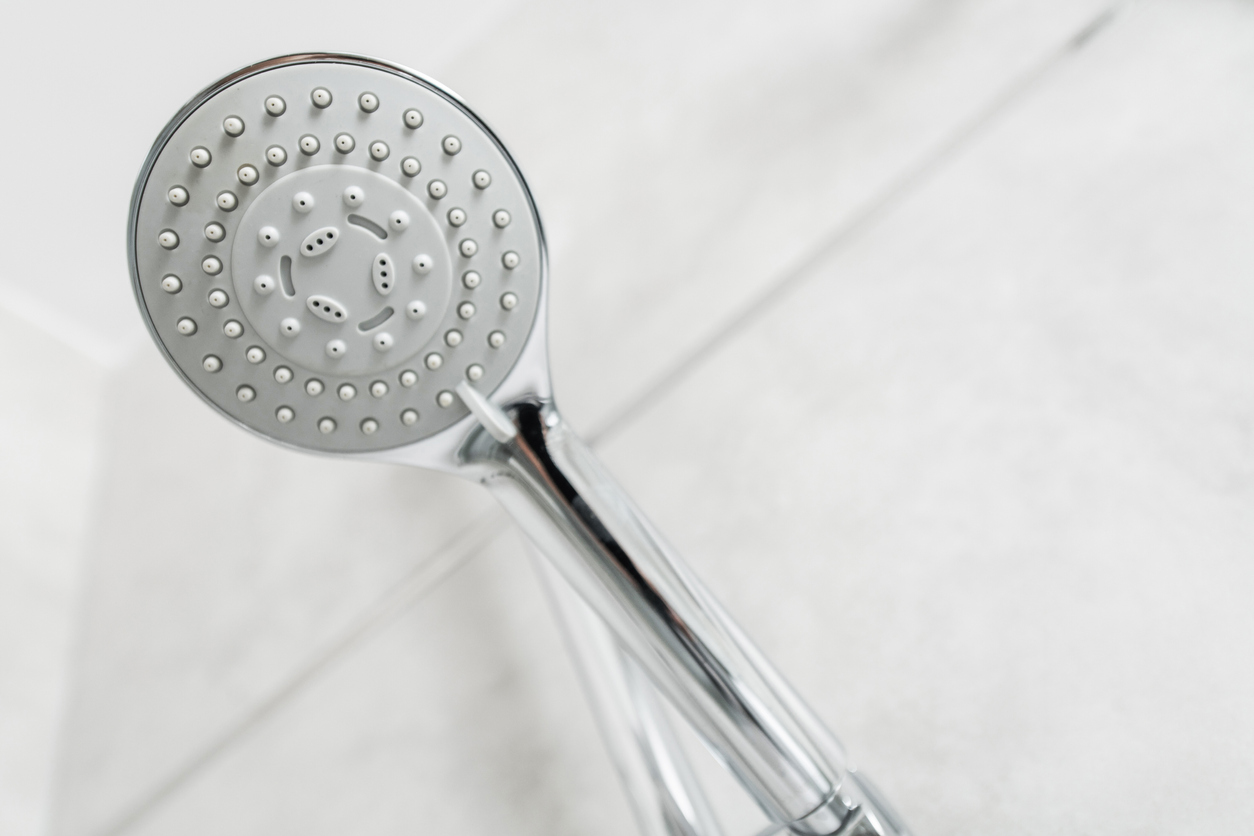
Over time, calcium and limescale can build up on faucets and shower heads in homes with hard water. Not only is this buildup unsightly, but it can block the flow of water. Try soaking your shower heads in a bowl of hot water and 1 teaspoon citric acid cleaner for about an hour.
You can also soak a soft cloth with the mixture and wrap it around faucets to remove the calcium and limescale buildup. After the faucets and shower heads have finished soaking, lightly scrub and rinse them with cold water to remove any remaining residue.
7. Sanitize wooden kitchen tools, bowls, and cutting boards.
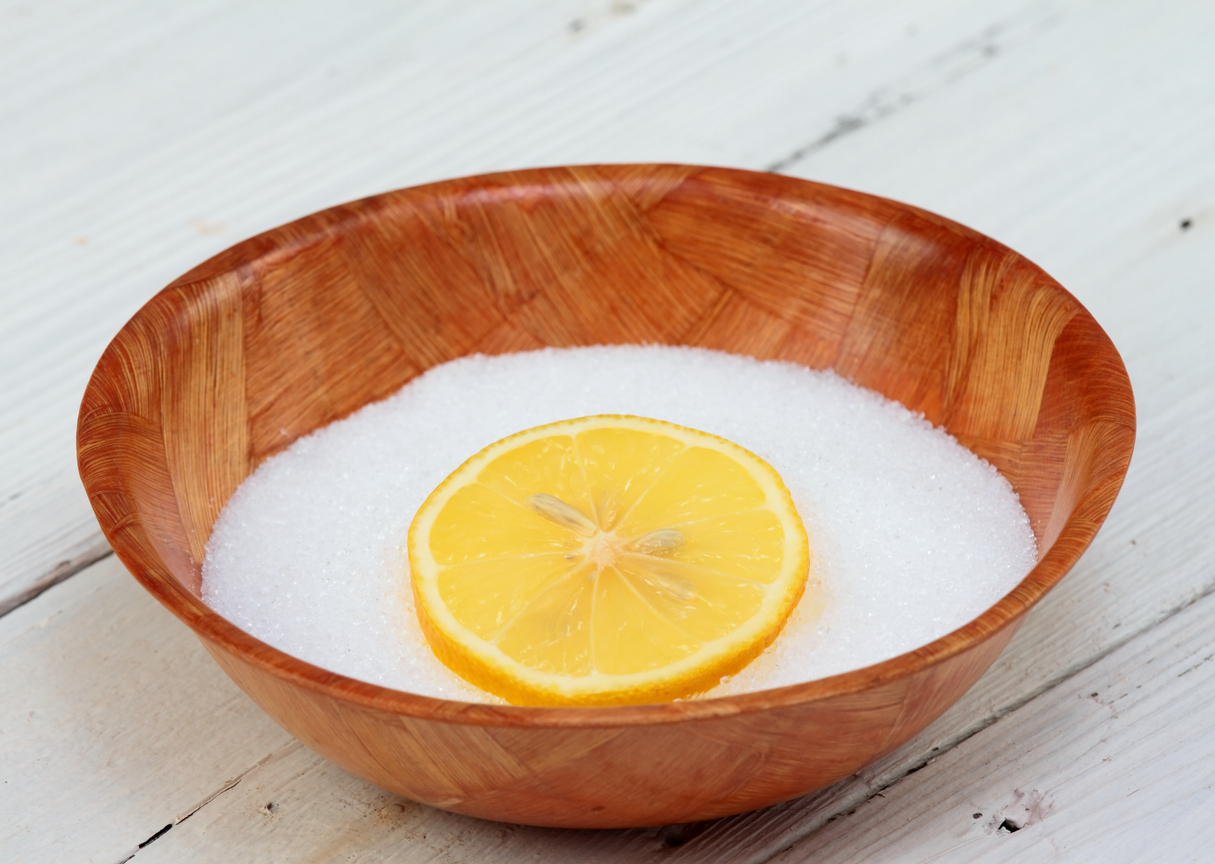
Another thing citric acid is good for in the kitchen is cleaning wood cooking utensils. In addition to its ability to help remove staining from surfaces, the cleaner also offers antibacterial properties, which can get rid of bacteria that may be lurking in wooden spoons, cutting boards, bowls, and other wooden kitchen tools.
8. Dissolve detergent buildup in the washing machine.
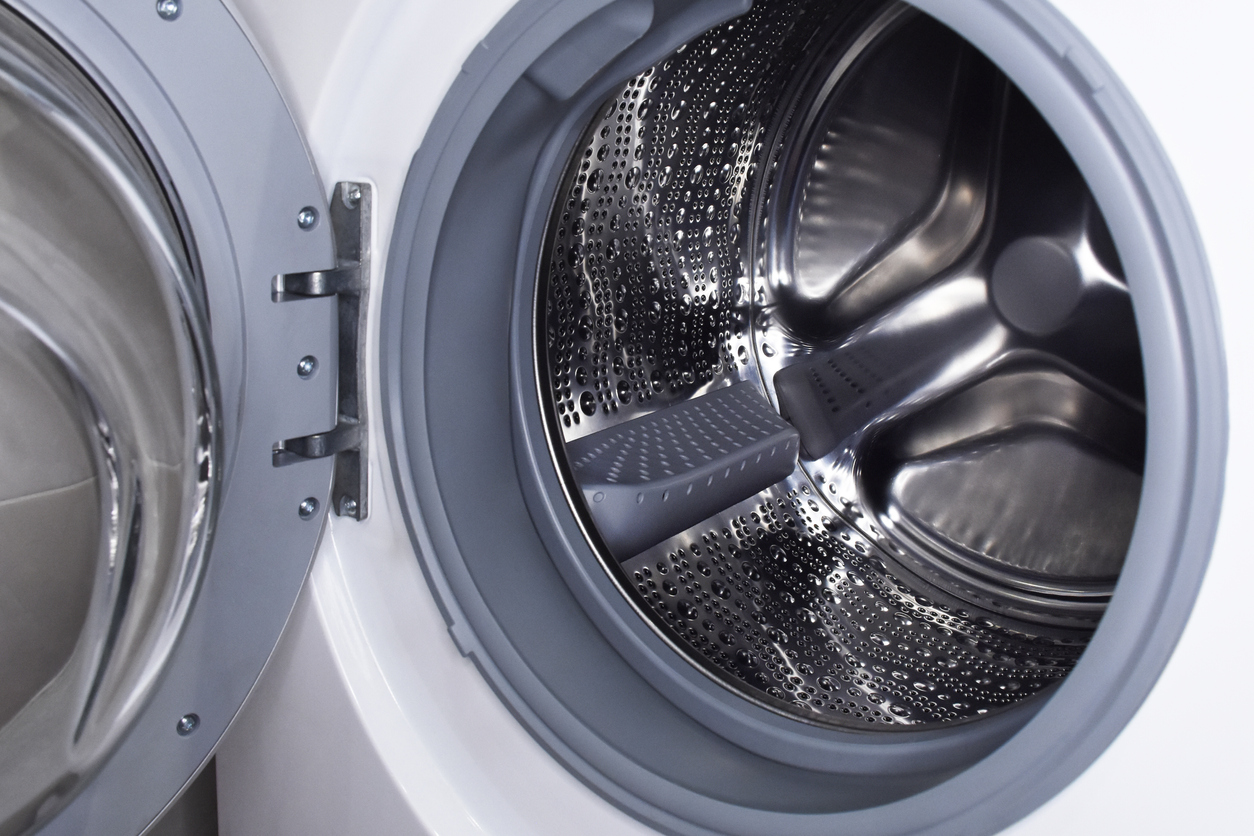
You can use citric acid for laundry cleaning (but only for white loads, as it can bleach darker fabrics), but you can also use it to clean the washing machine itself. Just as hard water can prevent all of the detergent from dissolving in your dishwasher, the same can happen in the washing machine. The soap scum residue will build up along the inside of the drum, creating an ideal environment for bacteria to grow.
Running a hot wash cycle with 2 teaspoons of citric acid powder and 1 teaspoon of baking soda will help remove accumulated soap scum and hard water deposits. To prevent future buildup, follow these steps once or twice each month.
FAQs
Citric acid is recognized as a safe cleaning product. It is also used for cooking various recipes and is safe to consume. That being said, the powder has the potential to irritate the nose, throat, skin, and eyes, so it is a good idea to wear protective gear when using it to clean.
Citric acid is available for purchase at grocery stores, home improvement stores, and online retailers.
Citric acid is just as effective of a cleaner as vinegar, if not more so due to its potency. For the same reason, though, vinegar is a milder and more widely available DIY cleaner.
